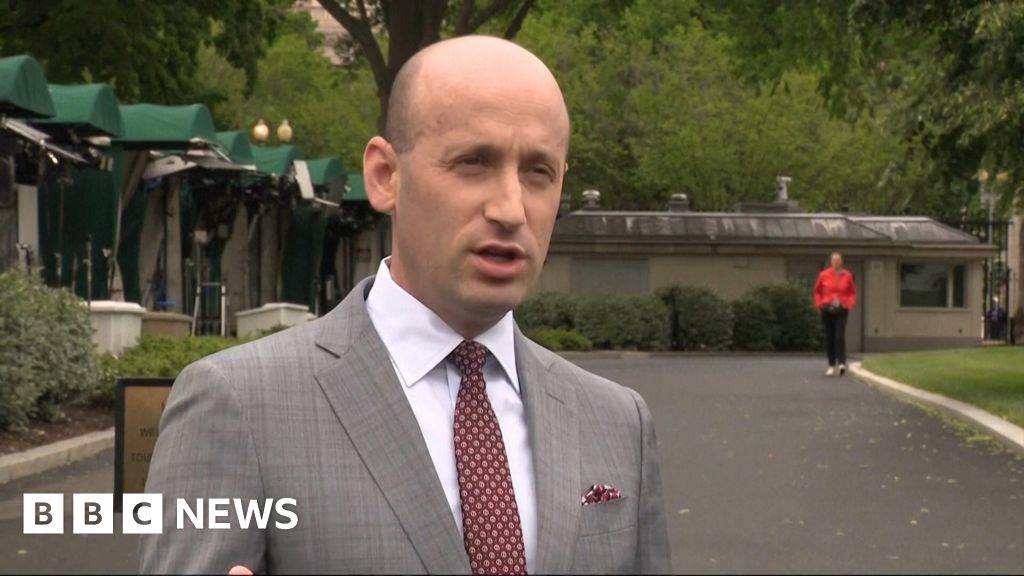The Climate Fix is our twice-a-month guide to the most important solutions to climate change across the world. Have comments about what we should cover? Email us at [email protected].
At a time when President Trump’s tariff policies have caused parts of the global trade system to grind to a halt, the shipping industry has been on a less-noticed campaign to cut its carbon emissions.
Last month, countries reached a draft agreement under the International Maritime Organization, a United Nations agency, that would require ships to either reduce their emissions or pay a fee. As Somini Sengupta reported, it’s “a remarkable, though modest” move that amounts to a tax on the industry’s carbon emissions.
And a host of companies — from biofuel producers to firms that make sails to better harness ocean winds — are taking steps to overhaul an industry that’s responsible for roughly 3 percent of the world’s greenhouse gas emissions.
“Industry is at the precipice of some real progress,” said Ingrid Irigoyen, president and chief executive of the Zero Emission Maritime Buyers Alliance, a group of companies, many of which rely on shipping, that are working to decarbonize the shipping industry.
Based in Le Havre, France, TransOceanic Wind Transport, or TOWT, is building large sailboats to transport cargo. The company’s ships, which are more than 260 feet long and can accommodate 830 standard North American pallets, transport goods like wine, champagne and jam, often for companies that want to promote their carbon footprint. This year, TOWT also began carrying passengers on trips across the Atlantic Ocean.
More than 90 percent of TOWT’s route from France to the United States is navigated using wind power. The company currently has two ships in operation, and has ordered six more to be delivered over the next couple of years. Trips from France to New York typically take about two weeks.
“It’s only just the start,” Guillaume Le Grand, the company’s chief executive officer, said.
Trump’s tariffs
But TOWT’s business hasn’t been immune to impact of the Trump administration’s tariffs. Earlier this year, as Le Grand was talking to a winemaker in France’s Burgundy region about using TOWT to ship its wine across the Atlantic, the news of Trump’s tariffs popped up on the winemaker’s phone.
“It was just that sort of shock moment,” Le Grand said. That winemaker wasn’t the only business affected by the tariffs, Le Grand said. As a result, the company is trying to entice U.S. customers by offering 30 percent discounts.
Roughly two-thirds of his company’s business used to come from shipping goods from France to the United States, but that figure has fallen to less than half, Le Grand said. He is also shifting the company’s focus to destinations outside the United States and opening routes to Central America and possibly Cuba.
TOWT is among a growing number of companies trying to use wind power to ship cargo more sustainably. Based in the Netherlands, Econowind makes suction wings that pull in wind to help propel ships forward. In 2023, Cargill, the agriculture giant, along with a couple of other firms, deployed WindWings, a type of sail used to harness the wind and allow ships to use less fuel.
Irigoyen, however, cautions that it’s tough for cargo ships to rely heavily on wind power, given its unpredictability.
Maritime’s future
TOWT’s third ship is expected to be ready for delivery in 2026, according to Le Grand, and the company plans for its fleet to top 500 by 2040.
As for the industry at large, the draft Maritime Organization agreement could be officially adopted in October if countries approve it. Irigoyen cautioned that there are still outstanding questions with the agreement, and said that some of the regulations are going to be tough to implement.
Then there’s the matter of politics. The United States didn’t take part in negotiations over the agreement, and some U.S. companies are still trying to keep their efforts to fight climate change quiet, Irigoyen said.
Even so, she thinks the industry’s efforts will endure beyond the current political environment. “Politics come and go,” Irigoyen said.
Electric vehicles
A decade-long search for a battery that can end the gasoline era
In a suburb of Boston, Siyu Huang, the chief executive of Factorial Energy, and her husband, Alex Yu, have been working on a new kind of electric vehicle battery — a “solid state” battery — that could turn the auto industry on its head in a few years, if a daunting number of technical challenges can be overcome.
For Huang and her company, their battery has the potential to change the way consumers think about electric vehicles, give the United States and Europe a leg up on China, and help save the planet.
Factorial is one of dozens of companies trying to invent batteries that can charge faster, go farther and make electric cars cheaper and more convenient than gasoline vehicles. Transportation is the biggest source of man made greenhouse gases, and electric vehicles could be a potent weapon against climate change and urban air pollution. — Jack Ewing
Read more.
Conservation
Weed manager of the year: One man’s quest to save the Sonoran Desert
When Don Pike takes his daily walk, he laces up his brown hiking boots, grabs his walking stick and bucket hat and heads outside. Ten feet later, he carefully slips past the barbed wire and enters the Tonto National Forest. Unlike other parts of the Tonto, where the ground between the native plants and trees is covered with dry grasses, the earth is pale, crusty and barren, as it’s meant to be.
That’s because Pike has been pulling weeds.
He began hunting the thick grasses, which were introduced to the area by landscapers, almost 15 years ago. Since then, he estimates that he and his team of volunteers have cleared 550 of the roughly 14,000 acres they oversee. In 2024, that earned him the title of Arizona’s Weed Manager of the Year.
Work by volunteers like Pike has always been an important supplement to managing federal lands, according to government workers who say their programs have been underfunded for years. But since the Trump administration and the so-called Department of Government Efficiency began mass firings of federal workers, volunteers like Pike have become more vital than ever. — Austyn Gaffney
Read more.
Source link

















